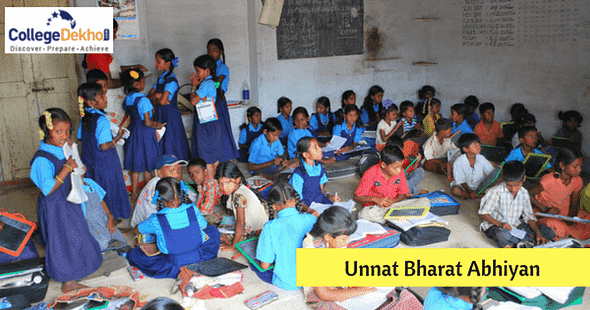- HRD Ministry has launched the second edition of the Unnat Bharat Abhiyan for the development of villages.
- A total of 750 institutes have participated and attended the first-day seminar organized by MHRD for the initiative.

The participation of 750 higher education institutes in India has been confirmed in the second edition of the Unnat Bharat Abhiyan launched today. These institutes will adopt villages in order to understand the lifestyle of people living there and find solutions for the problems faced by them.
The students from these institutes will go to nearby villages and will act as agents of change in order to help in the development of the nation. They will not only solve problems related to health, waste management, plantation, cleanliness, financial inclusion, women and child empowerment but will also involve villagers in the problem-solving process.
HRD Minister Prakash Javadekar said that it is a very bright opportunity for the students to learn in a challenging environment. Satya Pal Singh, Minister of State for HRD, said that the second edition of Unnat Bharat Abhiyan will prevent the migration of people in heavy numbers as these institutes will come up with sustainable development strategies.
Also Read: MHRD Introduces Swachh Bharat Summer Internship
Students from these 750 institutes also attended the seminar at the launch of the initiative on April 26, 2018. These numbers comprise both government and private institutions that were shortlisted on the basis of a challenge mode. However, the officials believe that participation from a total of 8,252 institutes will be required in order to cover 45,000 villages of the country.
Regional coordinating institutes and subject experts will be appointed to guide the participating institutes in this initiative. The HRD Ministry has appointed IIT Delhi as the National Coordinating Institute . Other reputed institutes will also be roped in for the initiative in different phases. The outreach will be gradually increased and technology will be used to solve rural issues .
Also Read: MHRD ‘Study in India’ Portal Launched; Aims to get 2 Lakh International Students
Action plans will be made in order to make the second edition of Unnat Bharat Abhiyan a success. The participating institutes will also coordinate with the elected public representatives of the panchayat, district administration and other stakeholders to come up with development plans. Various government schemes will also be utilized in order to help these rural regions develop.


 Follow us
Follow us













